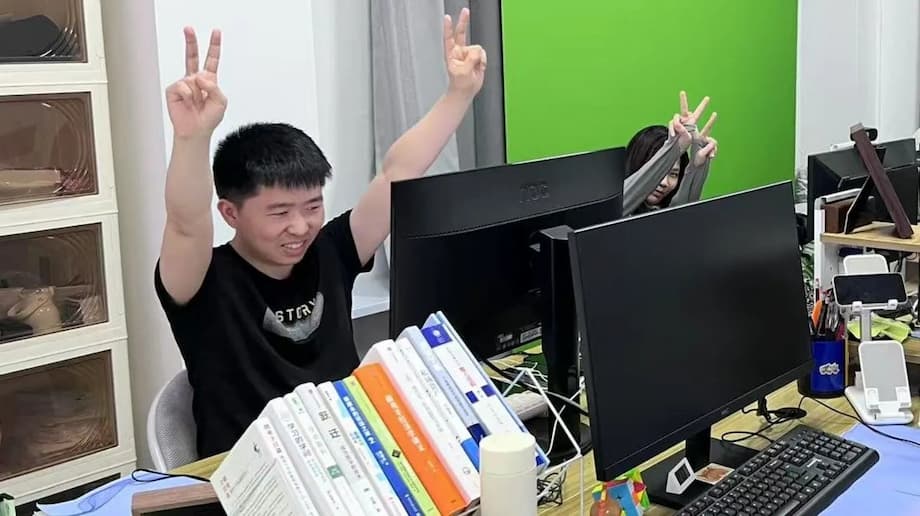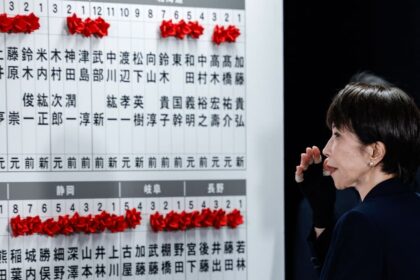The Unusual Solution to China’s Youth Unemployment Crisis
In cities across China, a peculiar new industry is booming: young adults are paying to pretend they have jobs. For a daily fee of 30 to 50 yuan (about $4–$7), unemployed youth can rent a desk in a mock office, complete with Wi-Fi, coffee, snacks, and even staged interactions with faux supervisors. These so-called “pretend-to-work” companies have sprung up in major cities like Shenzhen, Shanghai, Chengdu, Hangzhou, and Beijing, offering a curious blend of co-working space, psychological support, and social experiment. The trend, which has gone viral on Chinese social media, is a direct response to the country’s persistent youth unemployment crisis and the intense social pressure to appear productive.
How the ‘Pretend-to-Work’ Industry Works
At first glance, these offices look like any other modern workspace: rows of desks, high-speed internet, meeting rooms, and a steady supply of coffee and snacks. But there’s a twist—most of the people here aren’t employed by any company. Instead, they pay to simulate a typical 9-to-5 workday. Some spaces even offer fake assignments, staged emails, and the option to role-play as managers or rebellious employees. For an extra fee, clients can participate in mock arguments with a “boss,” adding to the realism.
For many, the appeal is more than just play-acting. Shui Zhou, a 30-year-old former food business owner, pays 30 yuan a day to attend a mock office in Dongguan. He says the environment helps him maintain discipline and provides much-needed social interaction. “It feels like working together as a group,” Zhou explains, noting that the routine and camaraderie have improved his mood and motivation since his business failed.
These offices are not just for show. Attendees use the facilities to search for jobs, work on start-up ideas, or prepare for competitive exams. Some, like recent graduate Xiaowen Tang, use their time in these spaces to fulfill university internship requirements, sending photos of their “workplace” as proof of employment. Others simply want to escape the scrutiny of family and neighbors, who might otherwise question their lack of a job.
Why Are Young Chinese Paying to Pretend to Work?
The rise of fake offices is rooted in a complex mix of economic, social, and psychological factors. China’s youth unemployment rate has hovered between 14% and 21% in recent years, depending on how it’s measured. The government’s official figures for 16-to-24-year-olds (excluding students) stood at 17.6% in September 2024, but many experts believe the real number is higher. The job market has been hit hard by economic slowdowns, the lingering effects of the COVID-19 pandemic, and a mismatch between university education and available jobs.
In Chinese society, job status is closely tied to personal identity and family honor. The pressure to appear successful is immense, especially for young people who have invested years in higher education. Unemployment is often seen as a source of shame, leading some to go to great lengths to maintain appearances. As one user of a pretend office told NewsBytes, “What I’m selling isn’t a workstation but the dignity of not being a useless person.”
Social media has amplified the trend. On platforms like Xiaohongshu (the Chinese equivalent of Instagram) and Douyin (China’s TikTok), hashtags such as #IPretendedToGoToWorkToday have racked up millions of views. Videos show young people documenting their daily routines in fake offices, sometimes hiding their faces to avoid being recognized. The phenomenon has sparked debate online, with some praising the creativity and resilience of China’s youth, while others worry it may delay real job-seeking efforts.
Beyond Offices: Libraries, Cafes, and Study Rooms
The urge to maintain routine and structure isn’t limited to fake offices. Many unemployed young people in China also frequent libraries, internet cafes, and paid study rooms. These spaces offer a quiet environment to prepare for civil service exams, apply for jobs, or simply escape the watchful eyes of family members. Renting a desk in a study room can cost by the hour, day, or month, and demand has surged alongside the jobless rate.
In rural areas, the situation is even more complex. It’s common for people up to age 40 to live with their parents, sometimes supported by family pensions or small-scale farming. However, as agricultural land is repurposed for development, many families lose their means of subsistence, making the search for employment even more urgent.
The Business of Pretending: Who Runs These Offices?
The pretend-to-work industry is as diverse as its clientele. Some businesses operate as formal co-working spaces, while others are informal ventures coordinated through apps like WeChat. Feiyu, a 30-year-old entrepreneur in Dongguan, started his “Pretend To Work Company” after experiencing unemployment himself during the pandemic. He now rents out workstations to young people seeking structure and dignity. “I see it as a social experiment,” Feiyu says, admitting he’s unsure whether the business will be profitable in the long run.
Most clients are recent graduates, freelancers, or digital nomads, with an average age around 30. Some use the space to network, update their resumes, or learn new skills—especially in fields like artificial intelligence, which are seen as pathways to better job prospects. Others simply want a place to feel normal, away from the stigma of joblessness.
For some, the fake office is a stepping stone. As Dr. Christian Yao, a senior lecturer at Victoria University of Wellington, explains, “Pretend office companies are one of the transitional solutions. Due to economic transformation and the mismatch between education and the job market, young people need these places to think about their next steps or to do odd jobs as a transition.”
Flexible Employment Professionals: A New Label
Officially, many of these young people are classified as “flexible employment professionals.” This bureaucratic term covers a wide range of non-traditional work arrangements, from gig economy jobs to freelance projects. It allows both individuals and companies to navigate China’s strict labor regulations while maintaining a veneer of employment. For universities, it provides a loophole for students who need proof of internships or work experience to graduate.
However, not everyone is convinced this is a sustainable solution. Dr. Biao Xiang, director of the Max Planck Institute for Social Anthropology, sees the trend as a symptom of deeper frustration and powerlessness. “Pretending to work is a shell that young people find for themselves, creating a slight distance from mainstream society and giving themselves a little space,” he says.
Social and Psychological Impacts: Coping with Pressure and Stigma
The psychological toll of unemployment in China is significant. In a culture that prizes productivity and filial duty, being out of work can lead to anxiety, depression, and a sense of failure. Many young people feel embarrassed about their situation, especially when living at home or relying on parental support. The fake office offers a way to reclaim routine, build confidence, and connect with others facing similar challenges.
Some experts argue that these spaces provide real mental health benefits. The structure of a workday, even an artificial one, can help combat the aimlessness and isolation that often accompany unemployment. As one participant told Radii, “It helps my mental health. I feel more normal, less anxious.”
Yet, there are also risks. The desperation for employment has made some young people vulnerable to scams. Fraudulent schemes have emerged, promising fake jobs or internships in exchange for hefty fees. In some cases, victims have been tricked into signing exploitative contracts or undergoing unnecessary procedures. The Chinese government has warned job seekers to be cautious and has pledged to crack down on employment fraud.
Societal Debate: Creative Coping or Delaying the Inevitable?
The rise of pretend-to-work offices has sparked debate among scholars, policymakers, and the public. Some see it as a creative and resourceful response to structural challenges, a way for young people to maintain dignity and hope during tough times. Others worry it may encourage avoidance or delay the search for real employment. Zhang Yong, a social work professor at Wuhan University of Science and Technology, believes the phenomenon is relatively isolated but acknowledges the intense pressure young people face. He advises, “Young people should honestly assess their situation, research the job market, and be open with their families to build a healthier mindset about career choices.”
For now, the trend shows no signs of slowing. As long as the job market remains tight and societal expectations remain high, China’s young adults will continue to seek out creative ways to cope, connect, and carve out a sense of purpose—even if it means paying to pretend to work.
Government Response and the Future of Youth Employment
The Chinese government has acknowledged the problem of youth unemployment and made high-quality employment a policy priority. President Xi Jinping has called for more job creation and support for young entrepreneurs, but concrete solutions have been slow to materialize. Critics argue that current economic policies, which often favor state-owned enterprises over private businesses, have stifled job growth and innovation.
Some government programs aim to encourage entrepreneurship, vocational training, and flexible work arrangements. However, the effectiveness of these measures remains uncertain, especially as unconventional solutions like pretend-to-work offices gain popularity. Without significant policy changes and economic reforms, many experts fear that the employment prospects for China’s youth will remain bleak.
Meanwhile, the fake office trend continues to evolve. Some businesses are experimenting with new services, such as skill-building workshops, networking events, and even matchmaking for job seekers. Others see the phenomenon as a temporary phase, a stopgap until the economy recovers and more traditional employment opportunities return.
In Summary
- China’s youth unemployment crisis has given rise to a unique industry where young adults pay to pretend they have jobs in fake offices.
- These offices offer structure, social interaction, and a way to maintain dignity amid intense societal pressure to appear productive.
- The trend is fueled by high unemployment rates, a mismatch between education and the job market, and the stigma of joblessness in Chinese culture.
- Social media has amplified the phenomenon, sparking debate about its psychological benefits and potential drawbacks.
- While some see fake offices as a creative coping mechanism, others worry it may delay real job-seeking efforts.
- The Chinese government has acknowledged the problem but has yet to offer effective solutions, leaving many young people searching for hope and purpose in unconventional ways.












